Top 9 Health Benefits of Pistachios
Pistachio nuts are not only delicious and enjoyable to eat, but they are also extremely beneficial. These edible seeds of the Pistacia vera tree are high in ... read more...healthy fats and high in protein, fiber, and antioxidants. Furthermore, they include a variety of critical nutrients and can help with weight loss, heart health, and digestive health. Pistachios have been consumed by humans since 7000 BC. They're now widely used in a variety of meals, including ice cream and sweets. Here are the greatest pistachio health advantages.
-
Pistachios are very nutritious, with a 1-ounce (28-gram) serving of about 49 pistachios containing the following:
- Calories: 159
- Carbs: 8 grams
- Fiber: 3 grams
- Protein: 6 grams
- Fat: 13 grams (90% are unsaturated fats)
- Potassium: 6% of the Reference Daily Intake (RDI)
- Phosphorus: 11% of the RDI
- Vitamin B6: 28% of the RDI
- Thiamine: 21% of the RDI
- Copper: 41% of the RDI
- Manganese: 15% of the RDI
Notably, pistachios are one of the highest vitamin B6-containing foods available. Vitamin B6 is required for a variety of body activities, including blood sugar management and the synthesis of hemoglobin, a protein that transports oxygen in red blood cells. Pistachios are also high in potassium, with one ounce having more than half the potassium of a large banana.
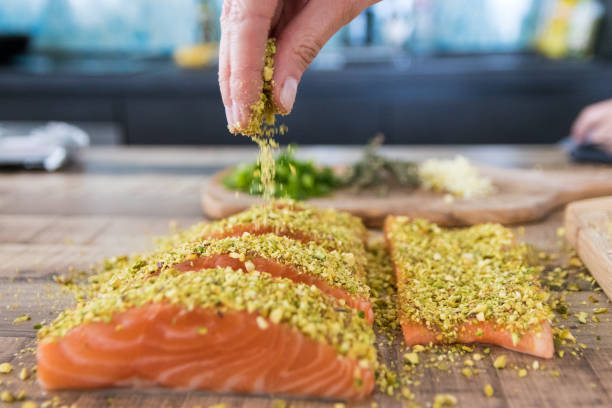
Loaded with nutrients 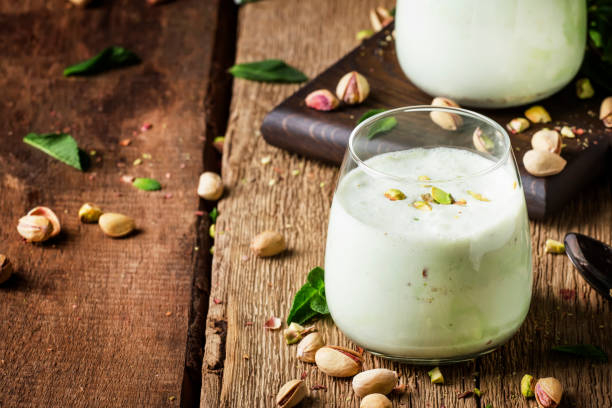
Loaded with nutrients -
Antioxidants are essential for good health. They protect cells from harm and serve an important function in lowering the risk of disease, such as cancer. Pistachios have more antioxidants than the majority of other nuts and seeds. Only walnuts and pecans have a higher concentration. Participants in a 4-week trial who ate one or two servings of pistachios per day had higher levels of lutein and -Tocopherol than those who did not eat pistachios. Pistachios have the highest level of lutein and zeaxanthin among nuts, both of which are significant antioxidants for eye health.
They shield your eyes against blue light damage and age-related macular degeneration, a condition in which your central vision is compromised or lost. Furthermore, polyphenols and tocopherols, two of the most abundant antioxidant groups in pistachios, may help protect against cancer and heart disease. Surprisingly, the antioxidants in pistachios are easily absorbed in the stomach. As a result, they have a higher chance of being absorbed during digestion.
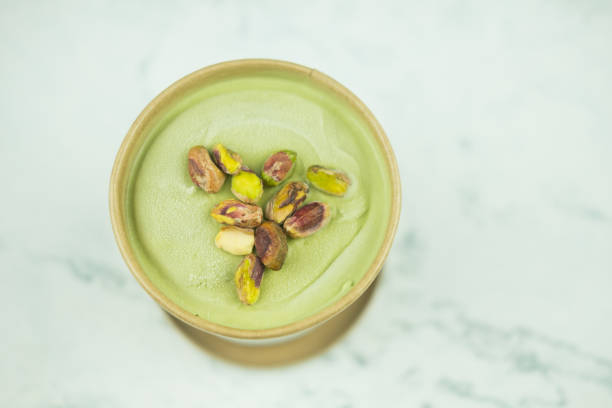
High in antioxidants 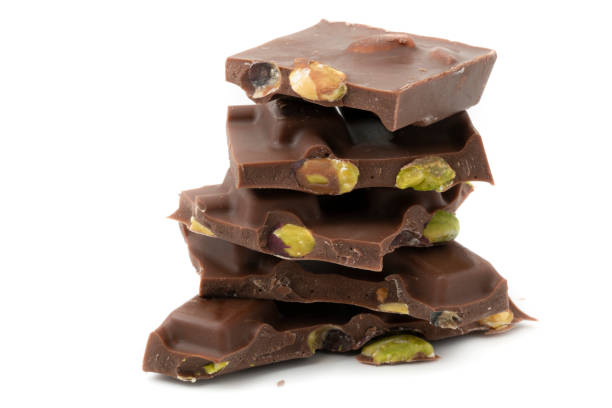
High in antioxidants -
While nuts have numerous health benefits, they are often heavy in calories. Pistachios, fortunately, are one of the lowest-calorie nuts. Pistachios have 159 calories per ounce (28 grams), compared to 185 calories in walnuts and 193 calories in pecans. Pistachios are second only to almonds in terms of protein content, accounting for around 20% of their weight. They also have a larger proportion of essential amino acids (protein building blocks) than any other nut.
These amino acids are deemed important since your body cannot produce them and you must receive them from your diet. Other amino acids, on the other hand, are regarded as semi-essential, which means that they can be essential under specific conditions, depending on the individual's health. L-arginine, which amounts to 2% of the amino acids in pistachios, is one of these semi-essential amino acids. In your body, it is transformed into nitric oxide, a molecule that helps your blood vessels to expand, so increasing blood flow.
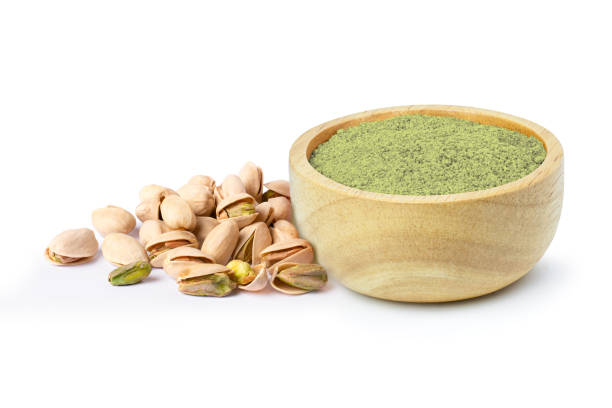
Low in calories yet high in protein 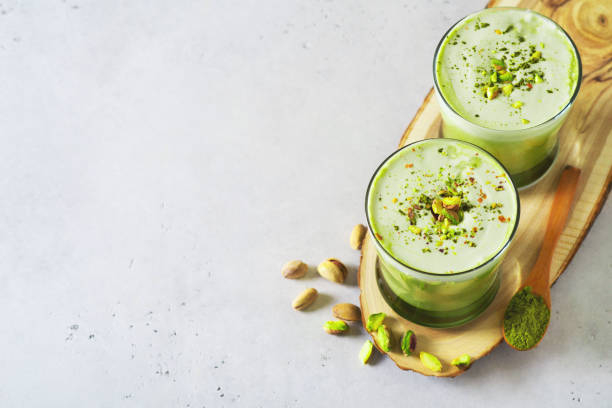
Low in calories yet high in protein -
Despite being a high-energy snack, nuts are one of the best foods for weight loss. While there has been research on the benefits of pistachios on weight, those that have been conducted are encouraging. Pistachios are high in fiber and protein, which improve satiety and help you eat less. Those who ate 1.9 ounces (53 grams) of pistachios per day as an afternoon snack had twice the reduction in body mass index compared to those who ate 2 ounces (56 grams) of pretzels per day in a 12-week weight loss program.
Furthermore, a 24-week trial of overweight people found that those who ingested 20% of their calories from pistachios lost 0.6 inches (1.5 cm) more off their waistlines than those who did not eat pistachios. One reason that may contribute to the weight loss benefits of pistachios is that their fat content is not fully absorbed. In fact, studies have shown that lipids from nuts are poorly absorbed. This is because a portion of their fat content is trapped behind their cell walls, inhibiting digestion in the gut. Furthermore, shelled pistachios promote mindful eating since shelling the nuts takes time and reduces the rate of consumption. The remaining shells also provide a visual indication of how many nuts you have consumed.
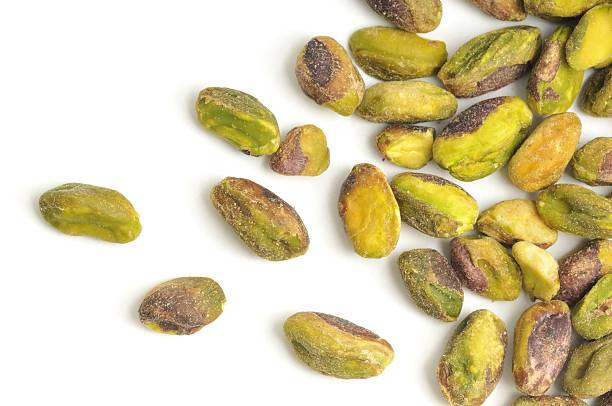
May aid weight loss 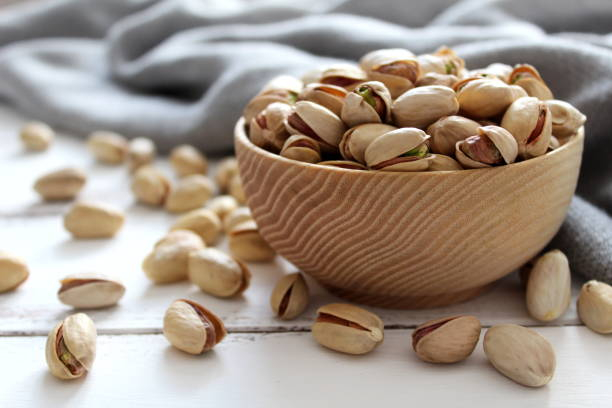
May aid weight loss -
Pistachios are high in fiber, with 3 grams in one serving. Fiber passes primarily undigested through your digestive tract, while some types of fiber are digested by the healthy bacteria in your stomach, acting as prebiotics. The fiber is then fermented by gut bacteria, which converts it into short-chain fatty acids, which may provide a variety of health benefits, including a lower chance of developing digestive disorders, cancer, and heart disease.
Butyrate is one of the most useful short-chain fatty acids. Consuming pistachios has been demonstrated to boost the amount of butyrate-producing bacteria in the gut more than almonds.
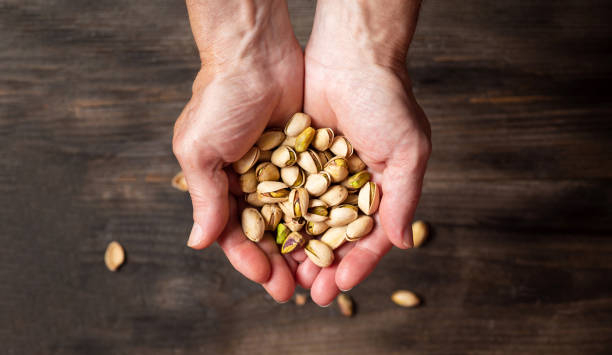
Promote healthy gut bacteria 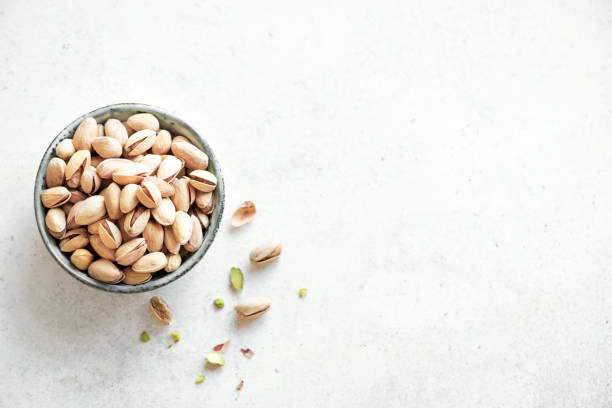
Promote healthy gut bacteria -
Pistachios may lower your risk of heart disease in a variety of ways. Pistachios are abundant in antioxidants and may lower blood cholesterol and blood pressure, lessening your risk of heart disease. Indeed, multiple studies have shown that pistachios can help decrease cholesterol. Many research on pistachios and blood lipids use pistachios to replace a portion of the calories in a diet. Up to 67% of these trials found lower total and LDL (bad) cholesterol and higher HDL (good) cholesterol.
Meanwhile, none of these researchers found that eating pistachios negatively affected the blood lipid profile. Pistachios were consumed as 10% of daily calories in one 4-week study of persons with elevated LDL cholesterol. The diet reduced LDL cholesterol by 9%, according to the study. Furthermore, consuming 20% of one's calories from pistachios reduced LDL cholesterol by 12%. Another study involved 32 young males who followed a Mediterranean diet for four weeks. Then, in place of the monounsaturated fat content, pistachios were added to that diet, accounting for around 20% of their daily calorie consumption.
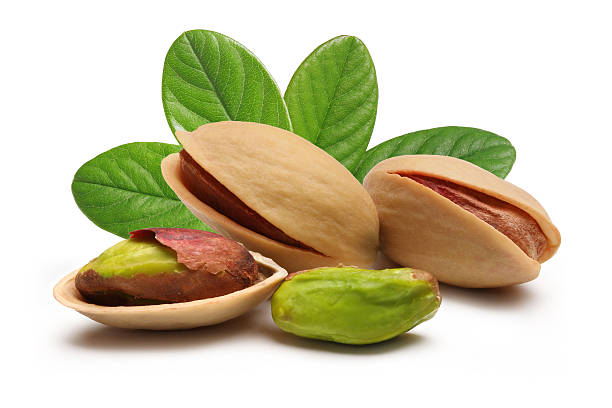
May lower cholesterol and blood pressure 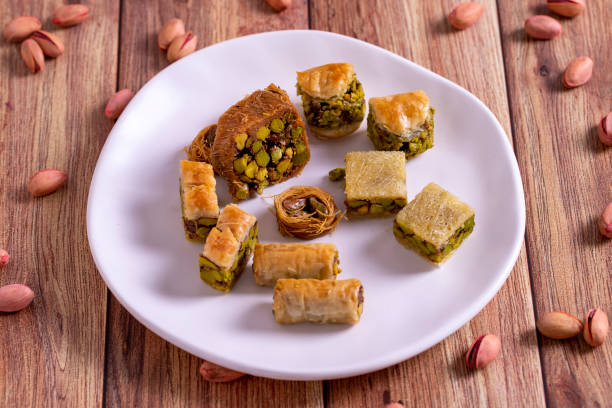
May lower cholesterol and blood pressure -
The inner lining of blood arteries is known as the endothelium. Endothelial dysfunction is a risk factor for heart disease, so it must operate properly. The widening or dilatation of blood arteries is known as vasodilation. Endothelial dysfunction is distinguished by decreased vasodilation, which reduces blood flow. Nitric oxide is a molecule that is essential for vasodilation. It causes blood arteries to dilate by instructing the smooth cells of the endothelium to relax.
Pistachios are high in the amino acid L-arginine, which the body converts to nitric oxide. As a result, these little nuts may be beneficial to blood vessel health. One study found that eating 1.5 ounces (40 grams) of pistachios daily for three months improved markers of endothelial function and vascular stiffness in 42 participants. Another four-week research had 32 healthy young men follow a diet that included 20% pistachios. It was discovered that when they followed a Mediterranean diet, endothelium-dependent vasodilation improved by 30%. Many body functions, including erectile function, rely on proper blood flow.
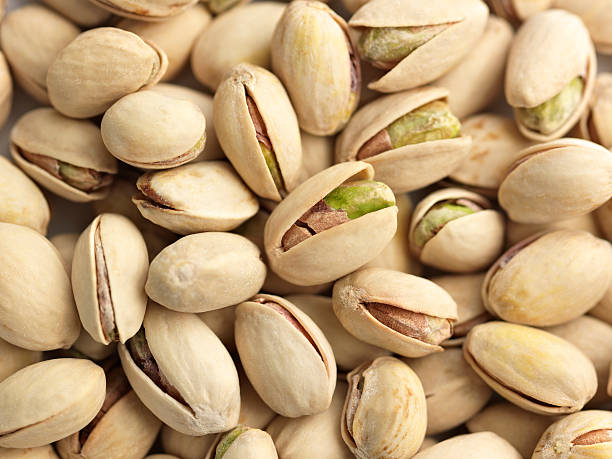
May promote blood vessel health 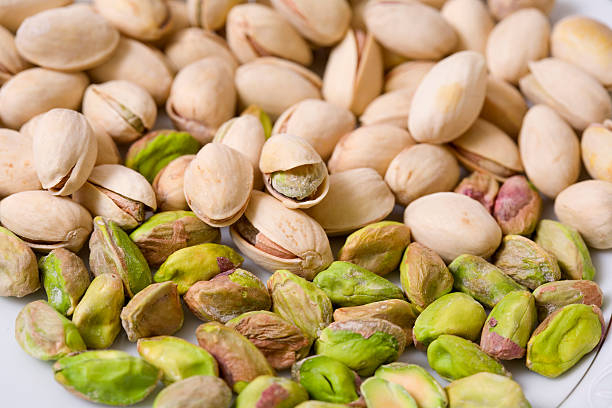
May promote blood vessel health -
Pistachios have a low glycemic index, which means they don't produce huge blood sugar increases while having a higher glucose content than most nuts. Not surprisingly, studies have shown that consuming pistachios can aid in the maintenance of appropriate blood sugar levels. According to one study, adding 2 ounces (56 grams) of pistachios to a carb-rich diet lowered healthy persons' blood sugar response after a meal by 20-30%. In another 12-week research, those with type 2 diabetes experienced a 9% drop in fasting blood sugar after consuming 0.9 ounces (25 grams) of pistachios twice a day as a snack.
Pistachio nuts, in addition to being high in fiber and good fats, are high in antioxidants, carotenoids, and phenolic compounds, all of which are advantageous to blood sugar regulation. As a result, merely including pistachios in your diet may help you regulate your blood sugar levels in the long run.
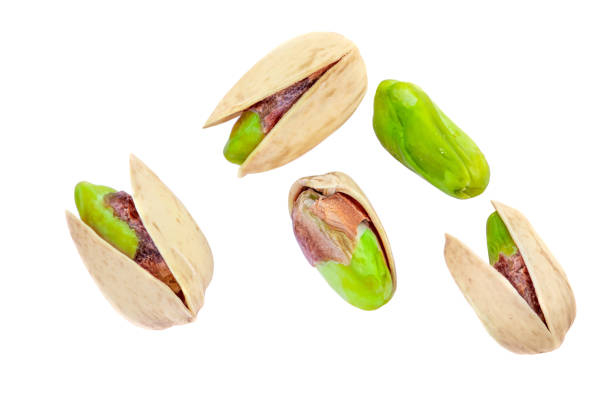
May help lower blood sugar 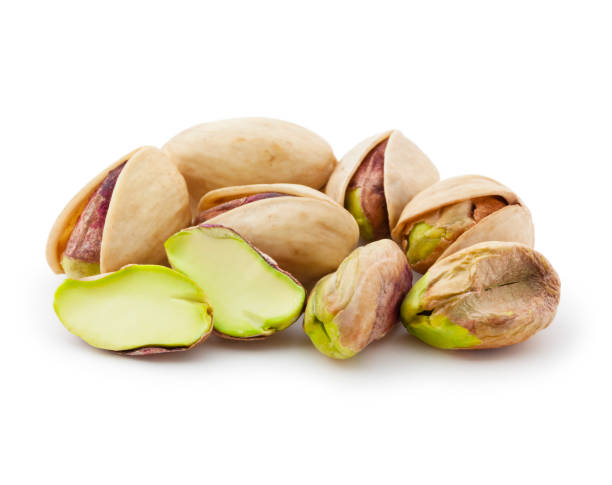
May help lower blood sugar -
Pistachios are high in the antioxidants lutein and zeaxanthin, both of which are necessary for eye health. According to the American Optometric Association, lutein and zeaxanthin help to minimize the risk of acquiring chronic eye disorders like cataracts. They may also aid in the prevention of age-related macular degeneration (AMD).
In the United States, AMD and cataracts are among the primary causes of blindness. A healthy diet that includes pistachios is a promising method to help reduce the development of various eye problems. Pistachios may aid people who want to lose weight because they have low-calorie values and a high fiber and protein content. A 2020 study discovered that eating 1.5 oz of pistachios every day helped reduce body mass index (BMI) and waist circumference in obese males and females, compared to a control group that did not eat an extra serving of pistachios per day.
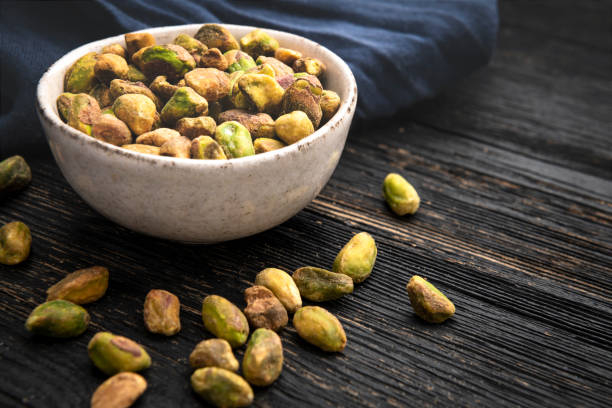
Good for eye health 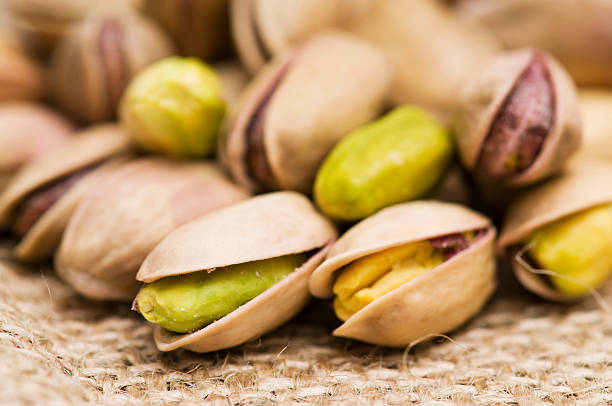
Good for eye health






























